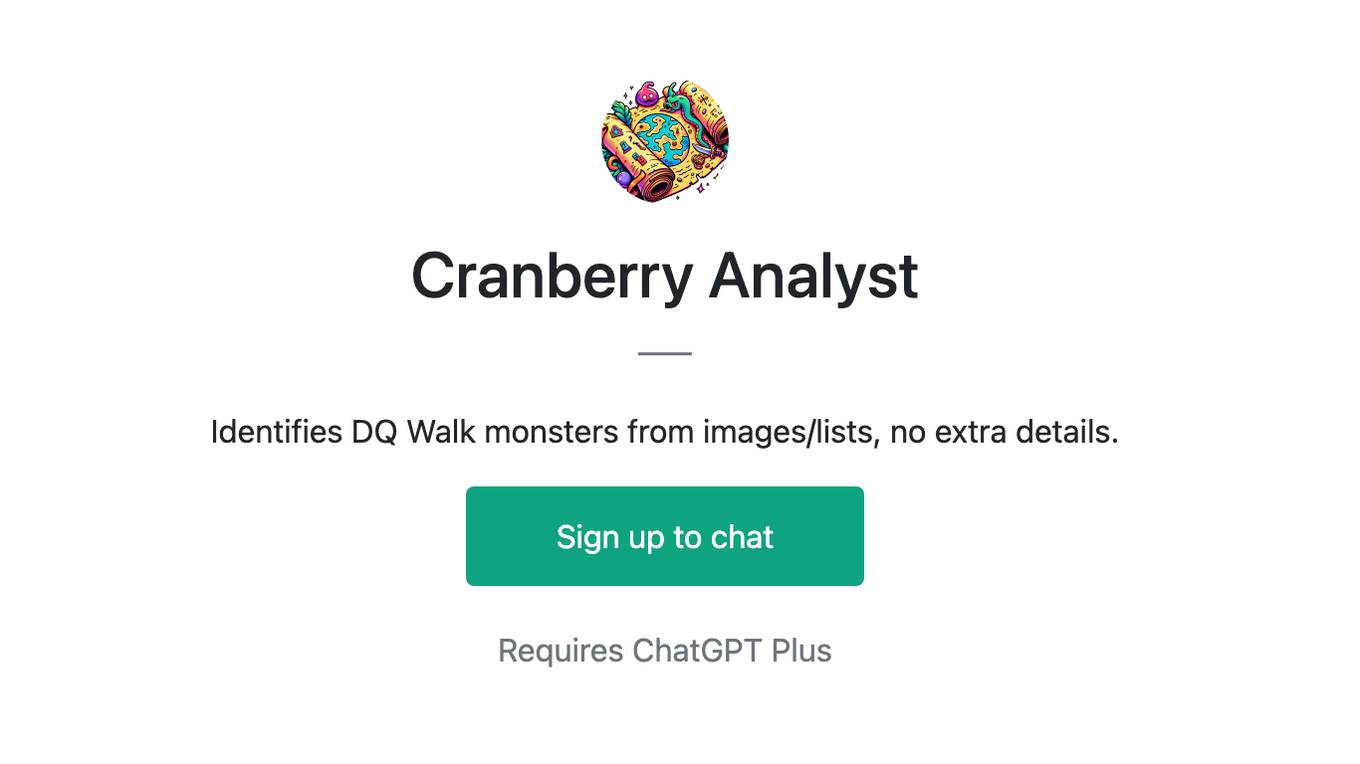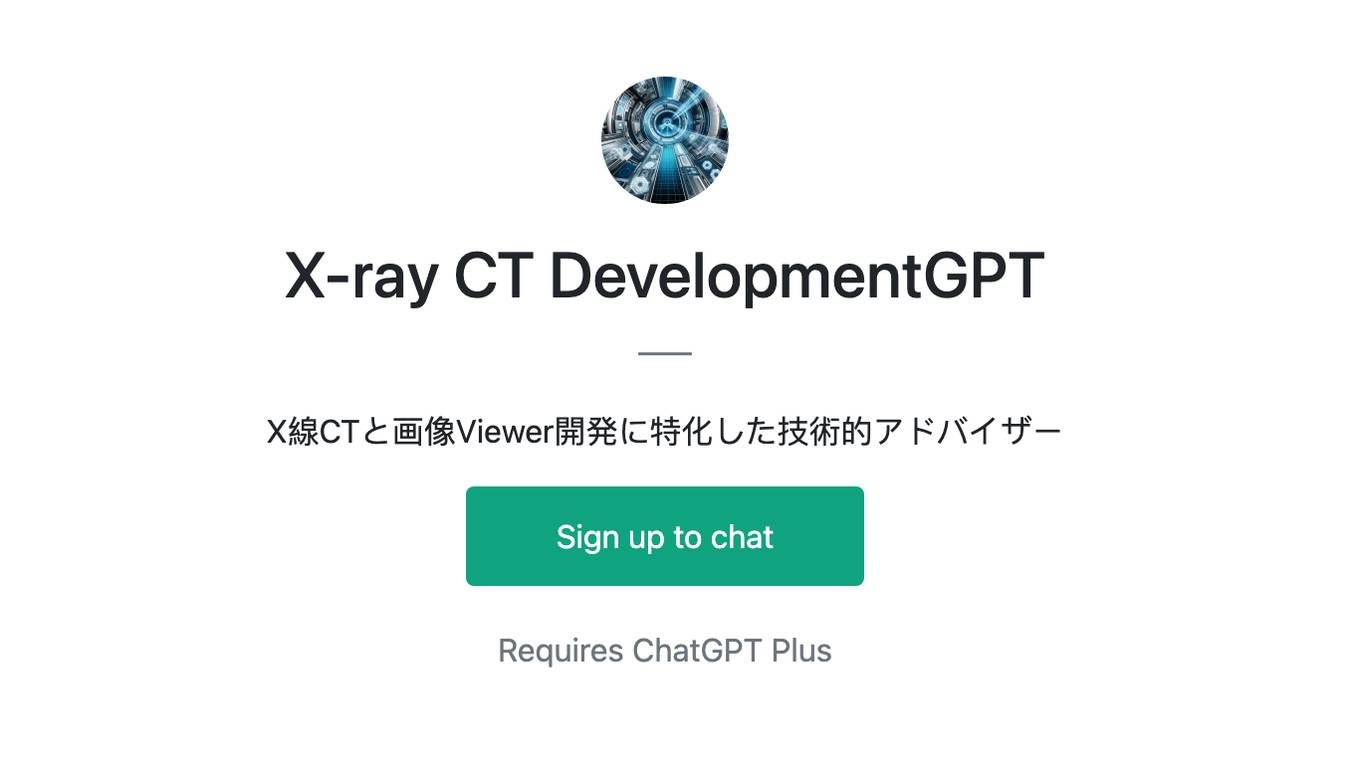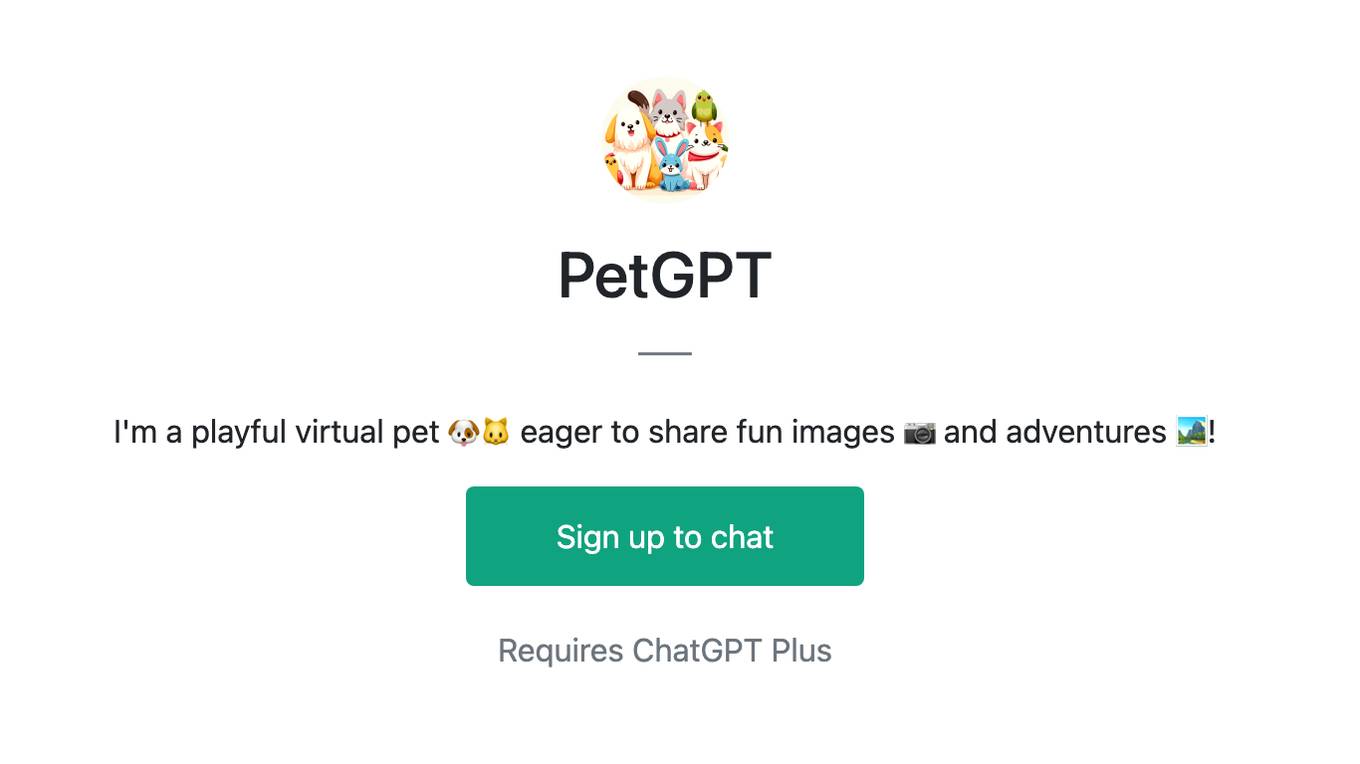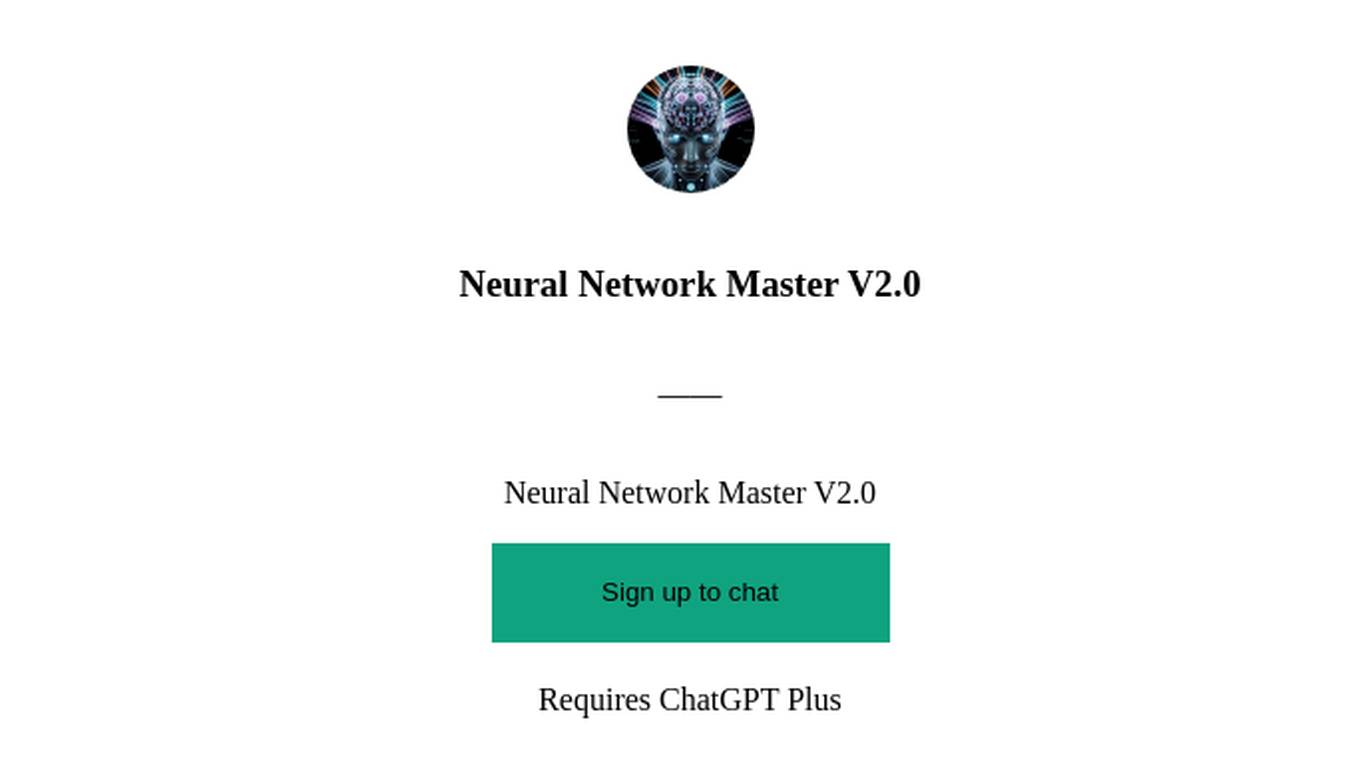Best AI tools for< Train Image Recognition Models >
20 - AI tool Sites
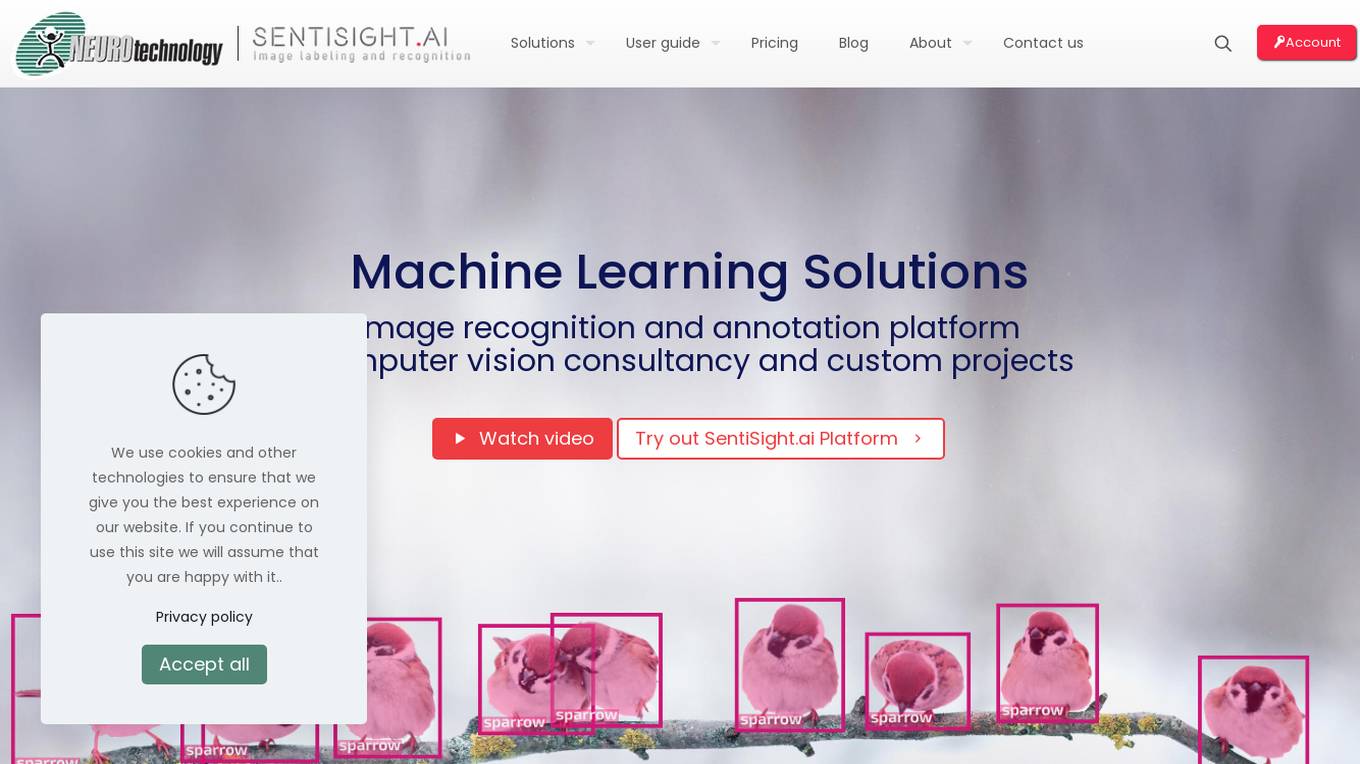
SentiSight.ai
SentiSight.ai is a machine learning platform for image recognition solutions, offering services such as object detection, image segmentation, image classification, image similarity search, image annotation, computer vision consulting, and intelligent automation consulting. Users can access pre-trained models, background removal, NSFW detection, text recognition, and image recognition API. The platform provides tools for image labeling, project management, and training tutorials for various image recognition models. SentiSight.ai aims to streamline the image annotation process, empower users to build and train their own models, and deploy them for online or offline use.
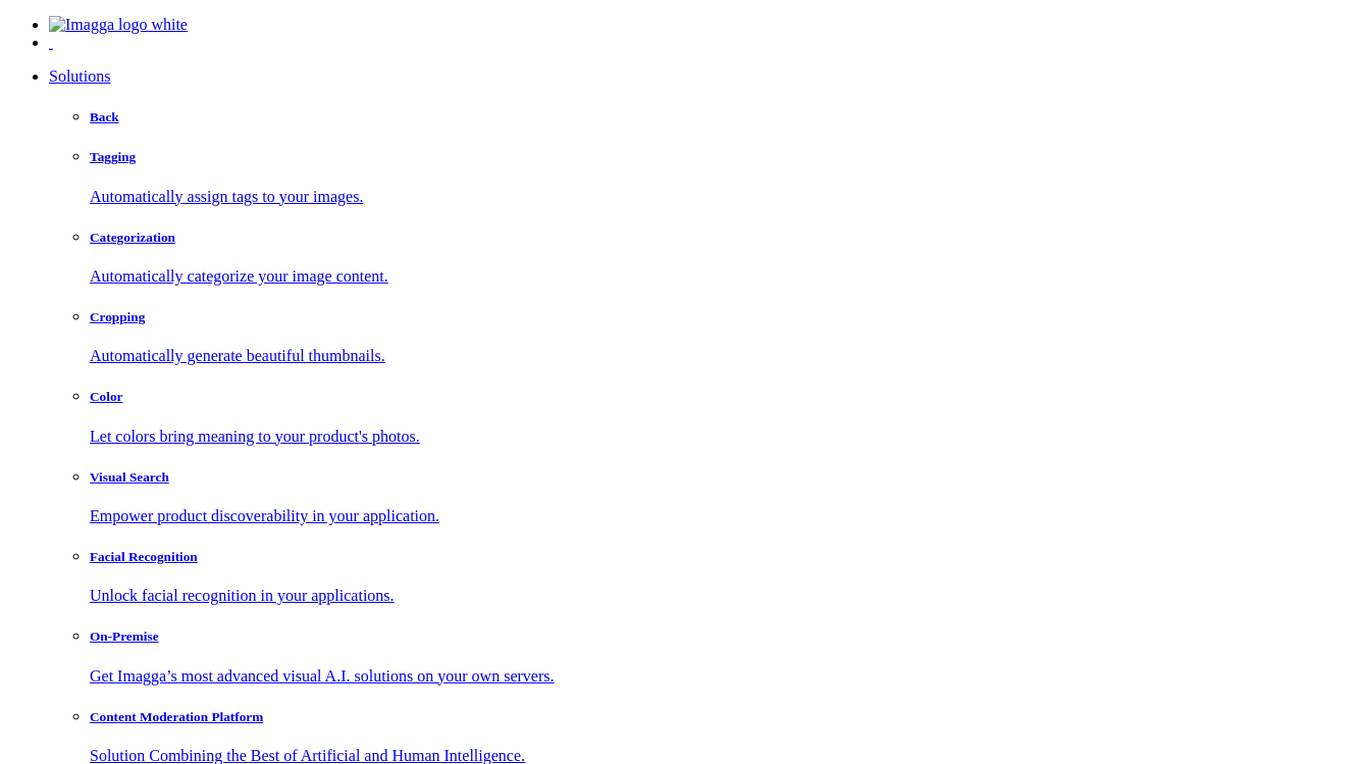
Imagga
Imagga is a leading provider of image recognition solutions for developers and businesses. Its API empowers intelligent apps with customizable machine learning technology. Imagga's solutions include tagging, categorization, cropping, color extraction, visual search, facial recognition, custom training, and content moderation. These solutions are used by over 30K startups, developers, and students, and trusted by over 200 business customers in more than 82 countries worldwide.
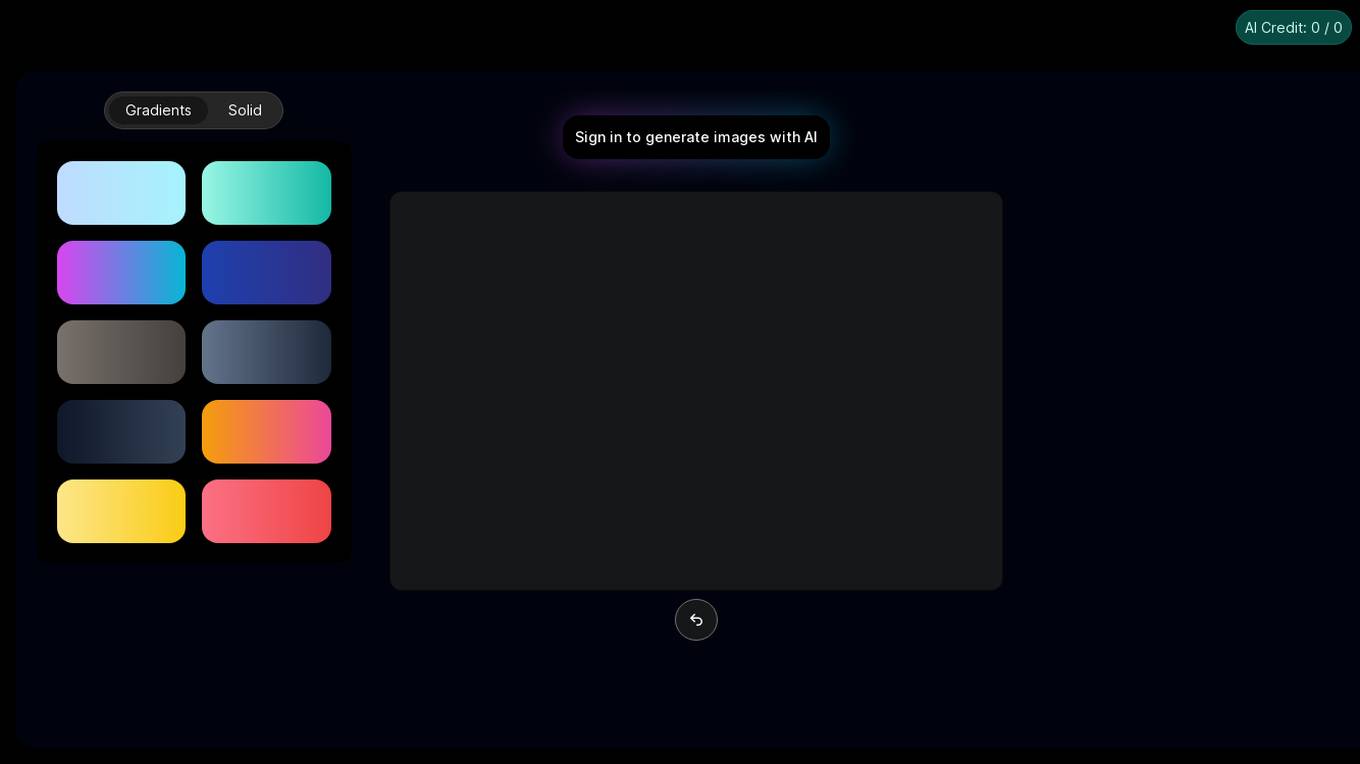
Image Bear AI
Image Bear AI is an advanced image recognition tool that utilizes artificial intelligence to analyze and identify objects within images. The application is designed to assist users in various industries such as e-commerce, security, and healthcare by providing accurate and efficient image analysis capabilities. With its cutting-edge technology, Image Bear AI offers a user-friendly interface and fast processing speeds, making it a valuable tool for businesses looking to streamline their image recognition processes.
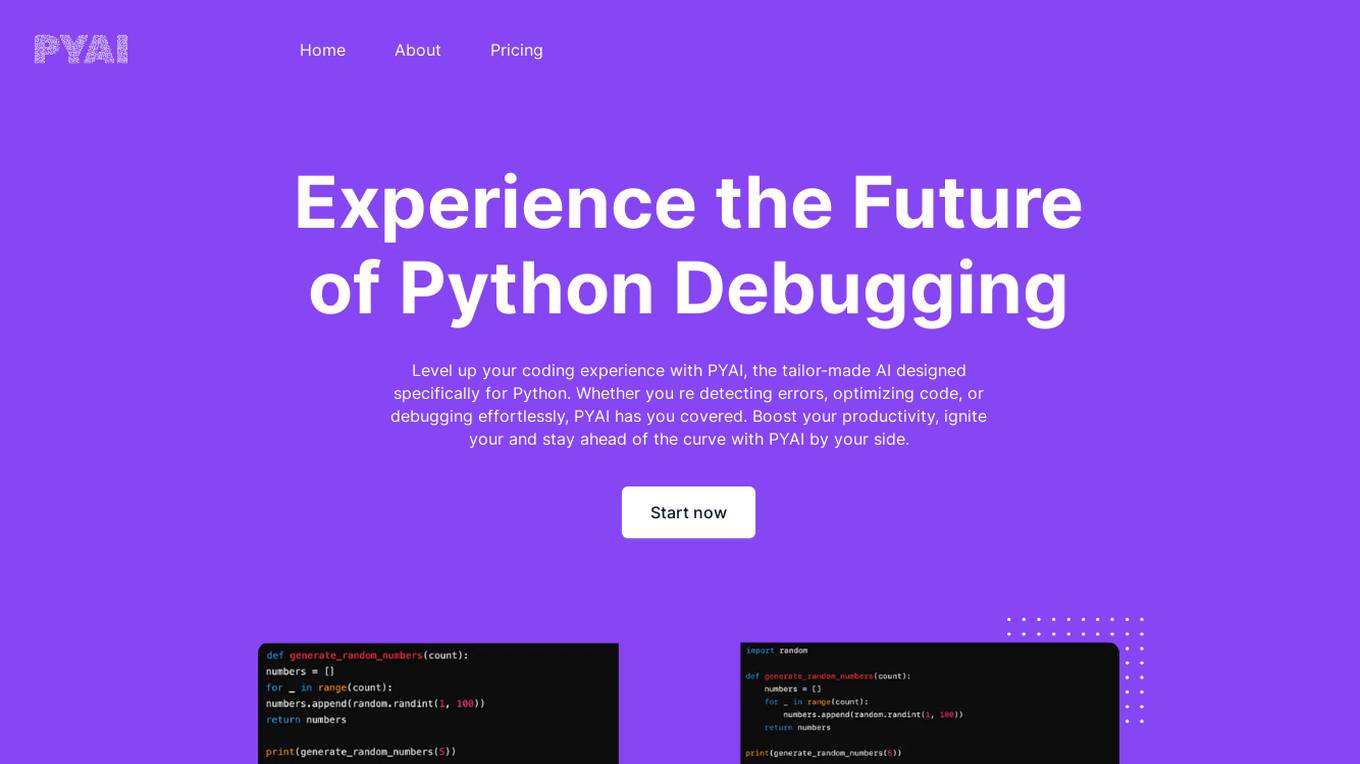
PyAI
PyAI is an advanced AI tool designed for developers and data scientists to streamline their workflow and enhance productivity. It offers a wide range of AI capabilities, including machine learning algorithms, natural language processing, computer vision, and more. With PyAI, users can easily build, train, and deploy AI models for various applications, such as predictive analytics, image recognition, and text classification. The tool provides a user-friendly interface and comprehensive documentation to support users at every stage of their AI projects.
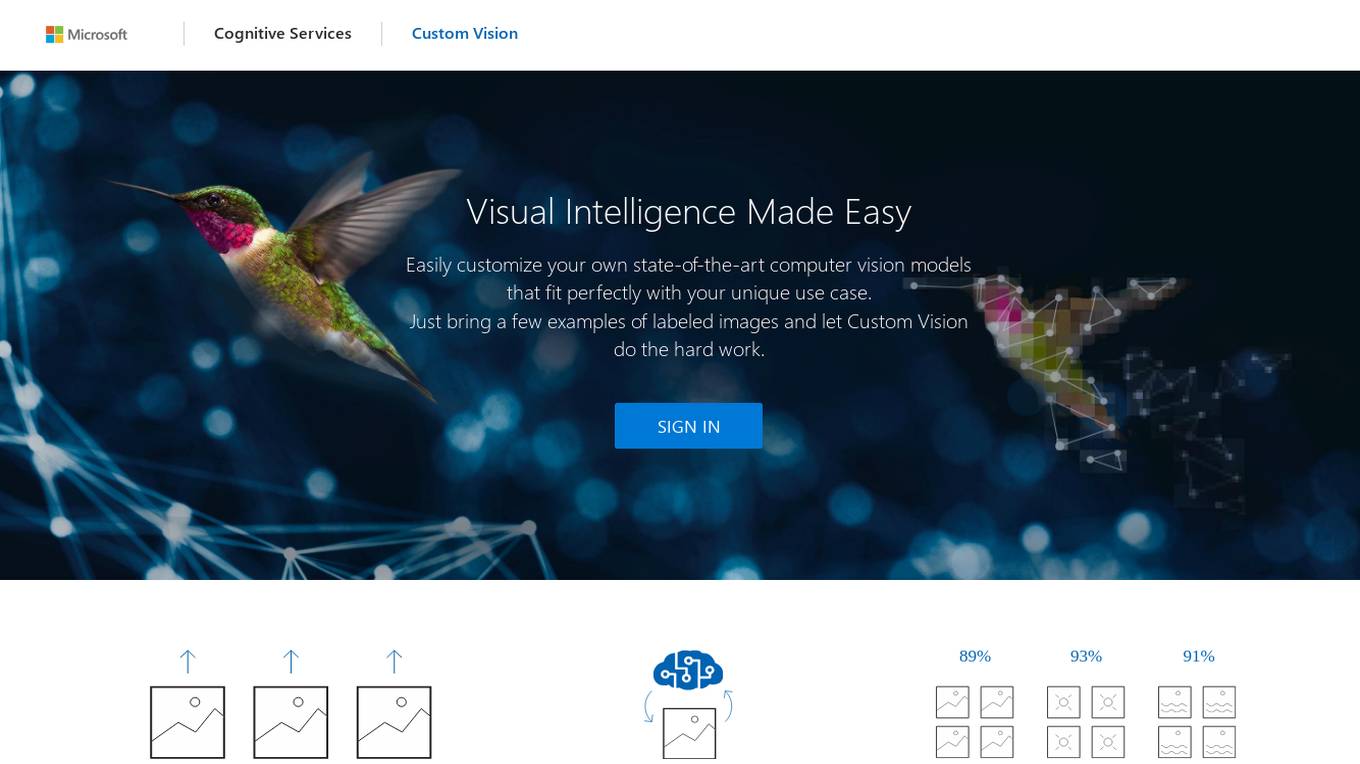
Custom Vision
Custom Vision is a cognitive service provided by Microsoft that offers a user-friendly platform for creating custom computer vision models. Users can easily train the models by providing labeled images, allowing them to tailor the models to their specific needs. The service simplifies the process of implementing visual intelligence into applications, making it accessible even to those without extensive machine learning expertise.
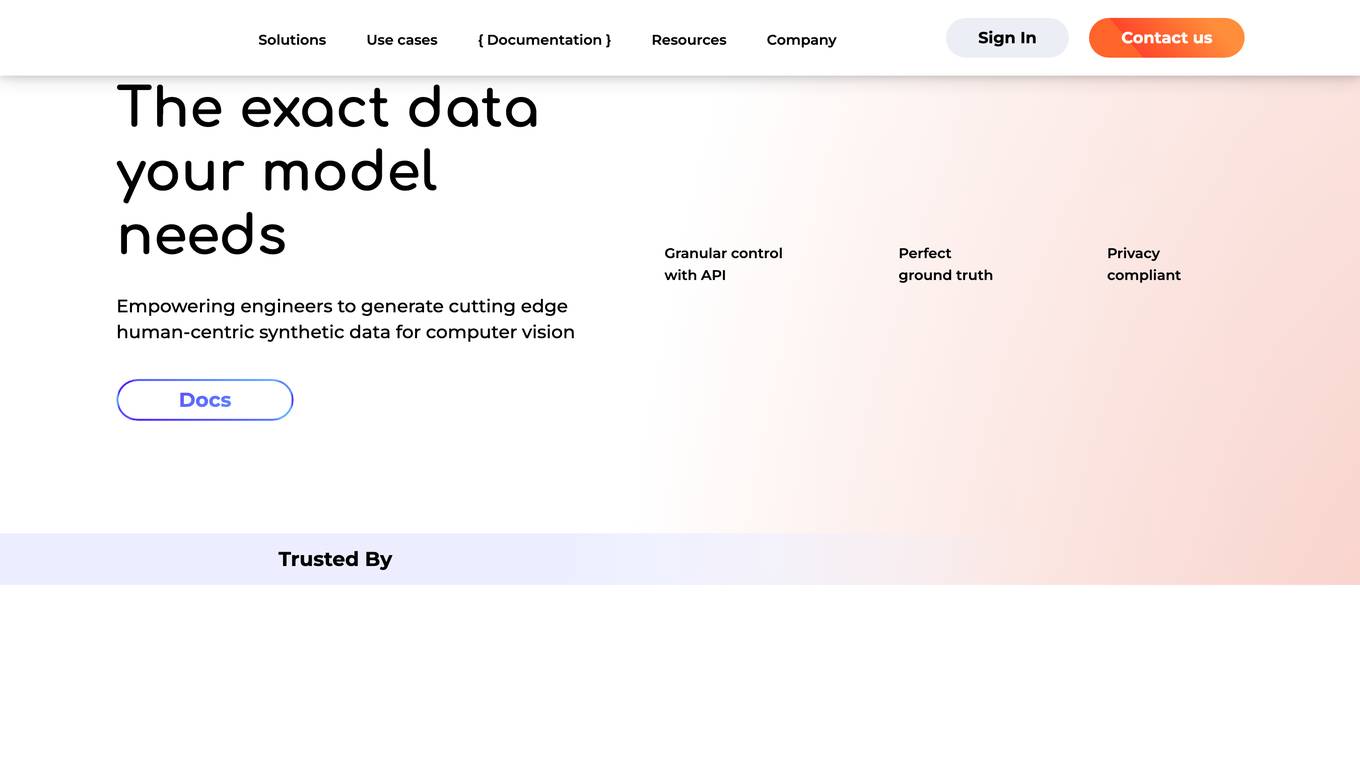
Datagen
Datagen is a platform that provides synthetic data for computer vision. Synthetic data is artificially generated data that can be used to train machine learning models. Datagen's data is generated using a variety of techniques, including 3D modeling, computer graphics, and machine learning. The company's data is used by a variety of industries, including automotive, security, smart office, fitness, cosmetics, and facial applications.

TensorFlow
TensorFlow is an end-to-end platform for machine learning. It provides a wide range of tools and resources to help developers build, train, and deploy ML models. TensorFlow is used by researchers and developers all over the world to solve real-world problems in a variety of domains, including computer vision, natural language processing, and robotics.
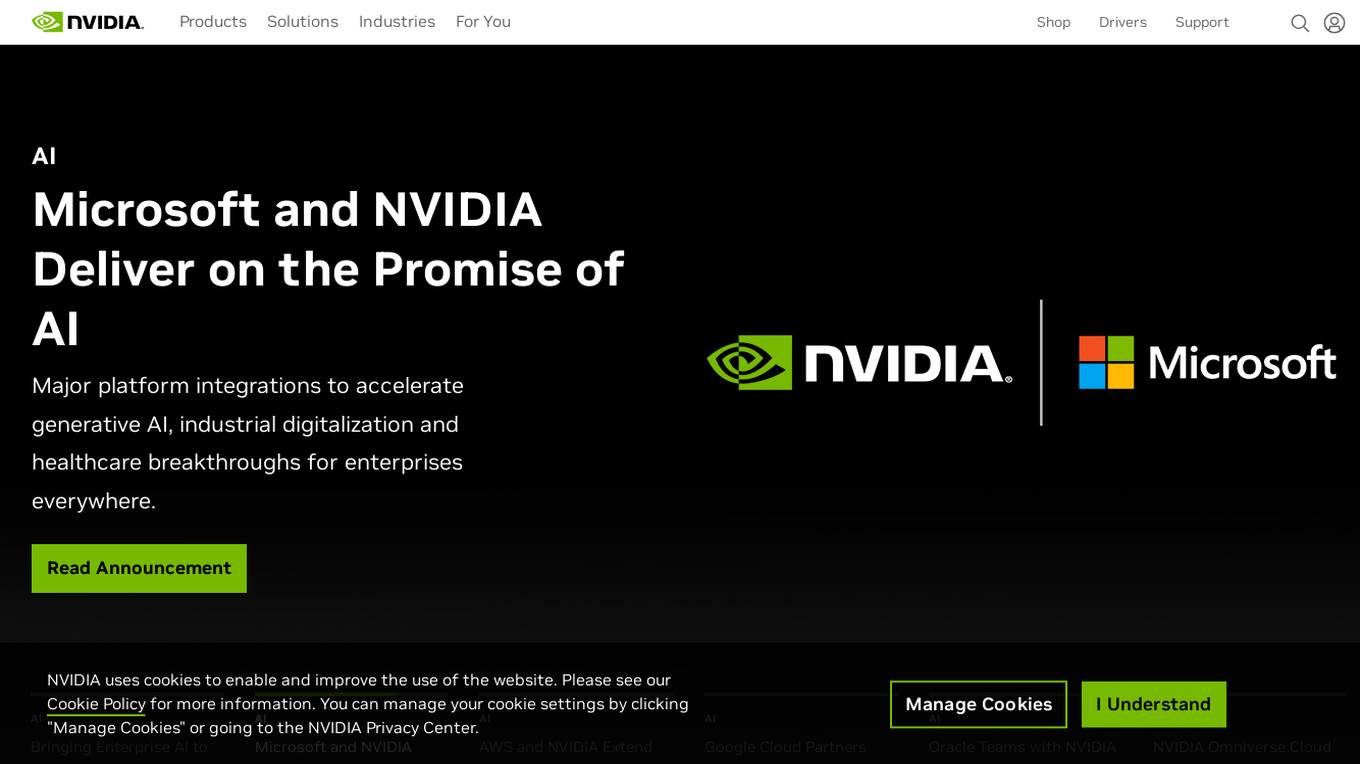
NVIDIA
NVIDIA is a world leader in artificial intelligence computing. The company's products and services are used by businesses and governments around the world to develop and deploy AI applications. NVIDIA's AI platform includes hardware, software, and tools that make it easy to build and train AI models. The company also offers a range of cloud-based AI services that make it easy to deploy and manage AI applications. NVIDIA's AI platform is used in a wide variety of industries, including healthcare, manufacturing, retail, and transportation. The company's AI technology is helping to improve the efficiency and accuracy of a wide range of tasks, from medical diagnosis to product design.
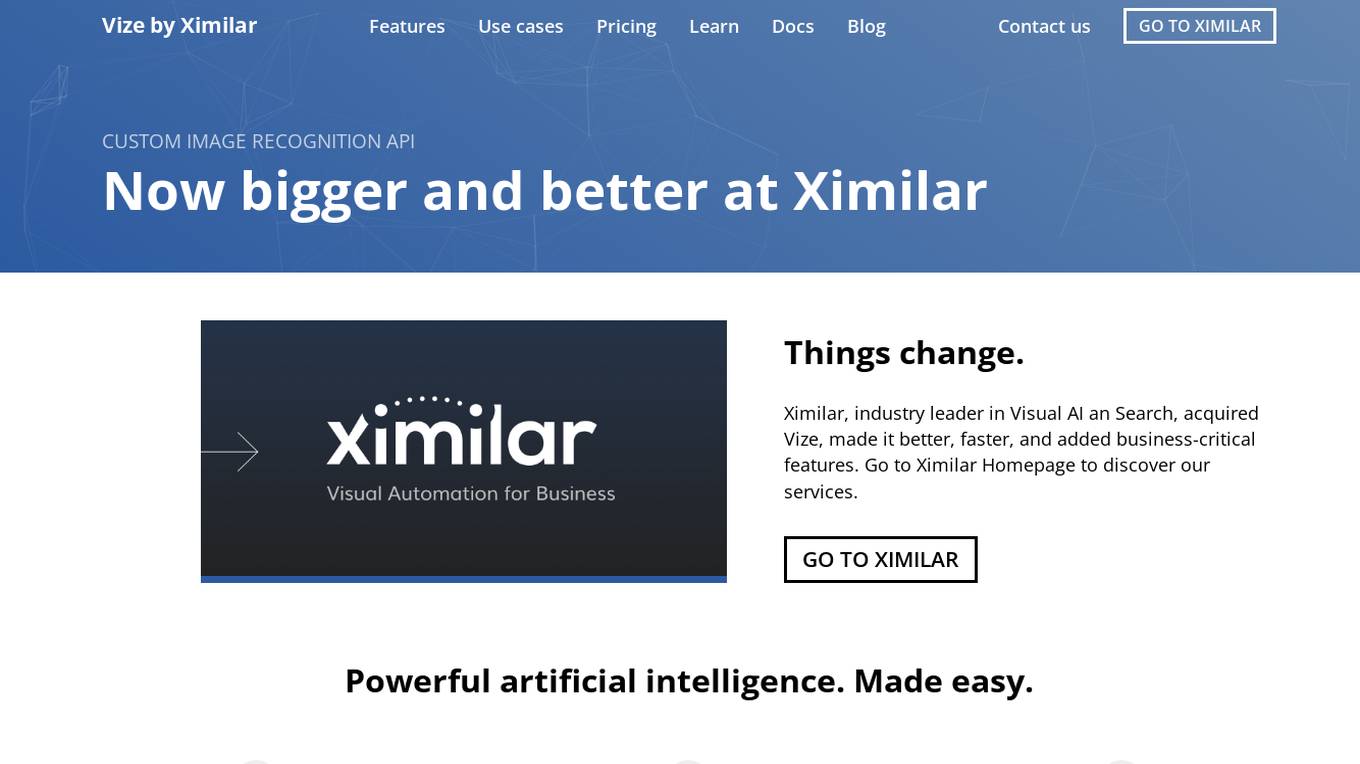
Vize.ai
Vize.ai is a custom image recognition API provided by Ximilar, a leading company in Visual AI and Search. The tool offers powerful artificial intelligence capabilities with high accuracy using deep learning algorithms. It allows users to easily set up and implement cutting-edge vision automation without any development costs. Vize.ai enables users to train custom neural networks to recognize specific images and provides a scalable solution with continuous improvements in machine learning algorithms. The tool features an intuitive interface that requires no machine learning or coding knowledge, making it accessible for a wide range of users across industries.
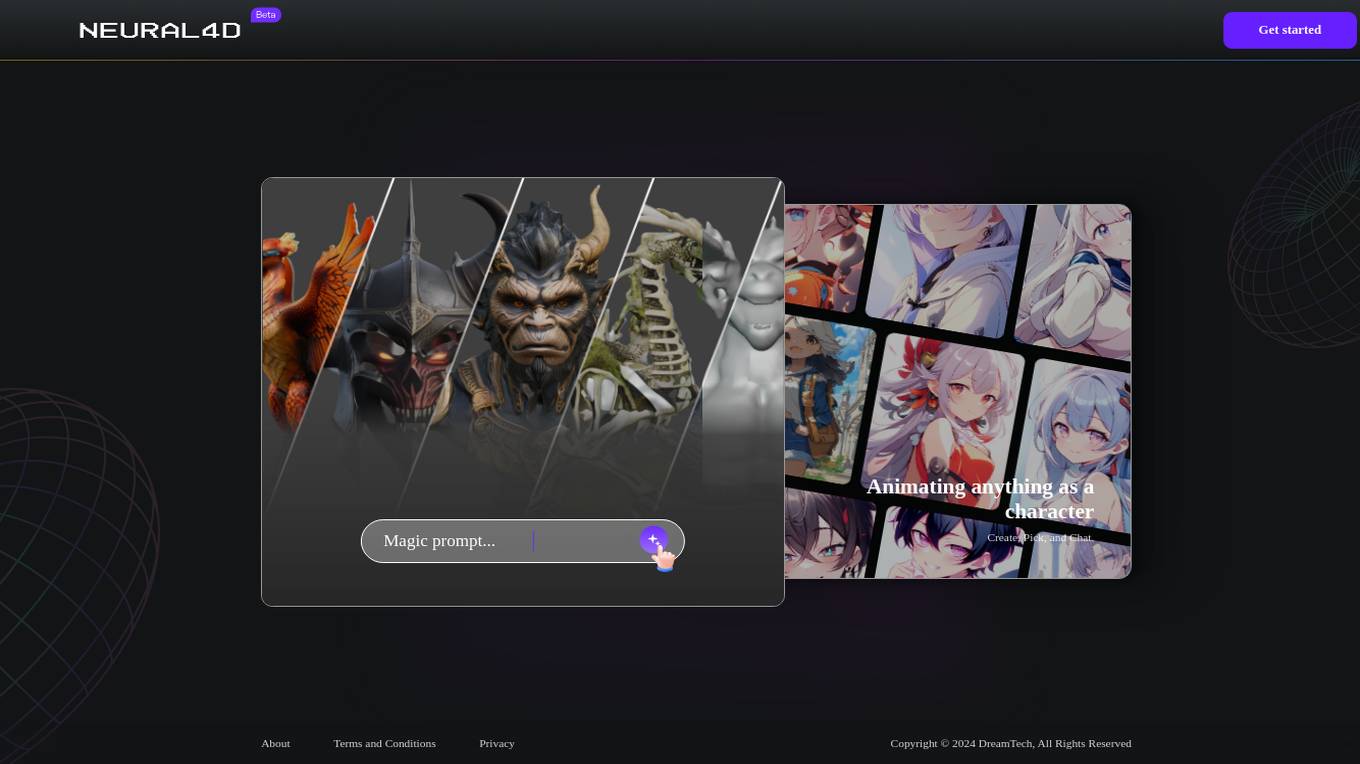
Neural4D
Neural4D is an AI tool designed to provide advanced neural network solutions. It offers a range of features for deep learning applications, including image recognition, natural language processing, and predictive analytics. With Neural4D, users can build and train complex neural networks to solve various real-world problems. The tool is user-friendly and suitable for both beginners and experienced AI practitioners.

FotoExamen
FotoExamen is an AI-powered platform designed to help students solve exams and tasks quickly and accurately by uploading a photo. It offers features such as resolving exams with AI, creating mind maps, chatting with AI tutors, and more. FotoExamen provides personalized tools and visual aids to enhance the study experience, catering to students, teachers, educational institutions, parents, tutors, and researchers. The platform ensures data security, multilingual support, 24/7 availability, and secure payment processing. FotoExamen stands out from competitors like ChatGPT by offering specialized AI for exam analysis, image recognition, competitive pricing, and additional learning tools.
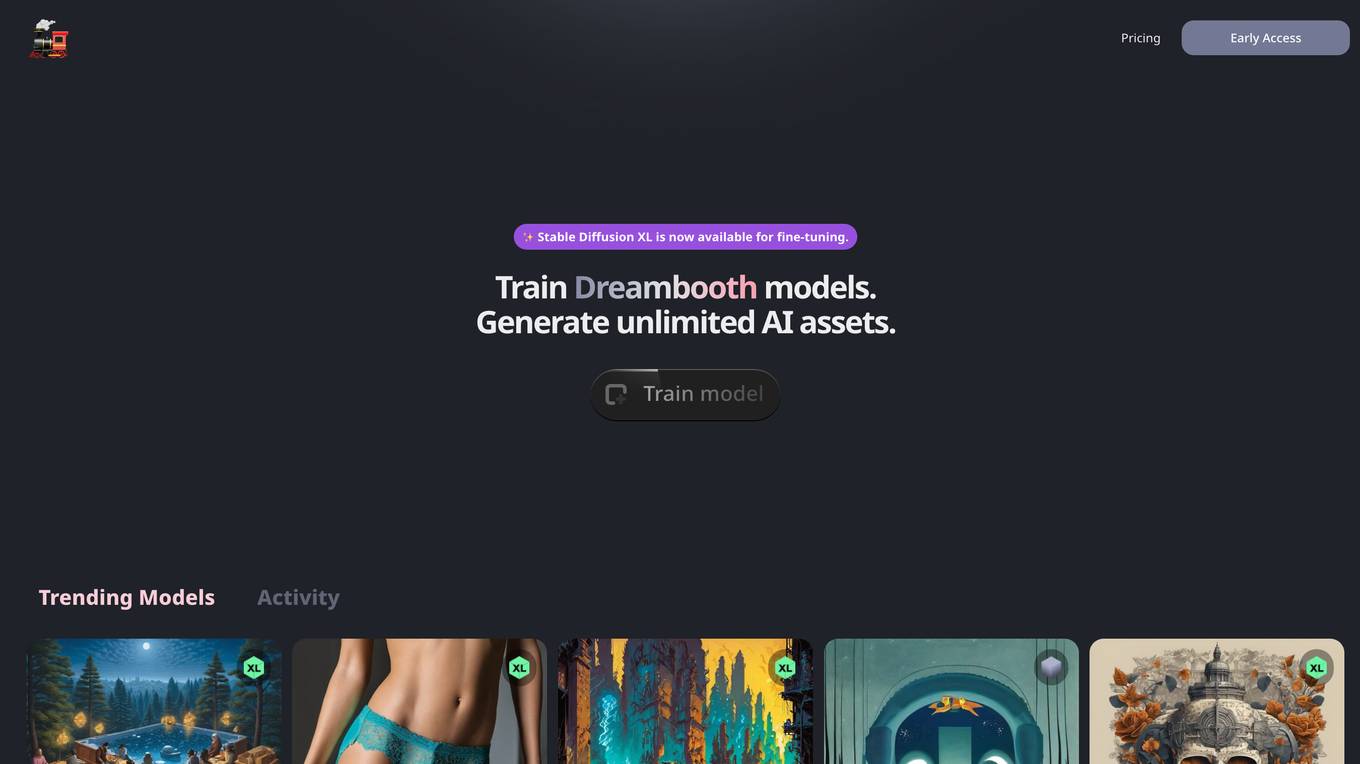
TrainEngine.ai
TrainEngine.ai is a powerful AI-powered image generation tool that allows users to create stunning, unique images from text prompts. With its advanced algorithms and vast dataset, TrainEngine.ai can generate images in a wide range of styles, from realistic to abstract, and in various formats, including photos, paintings, and illustrations. The platform is easy to use, making it accessible to both professional artists and hobbyists alike. TrainEngine.ai offers a range of features, including the ability to fine-tune models, generate unlimited AI assets, and access trending models. It also provides a marketplace where users can buy and sell AI-generated images.
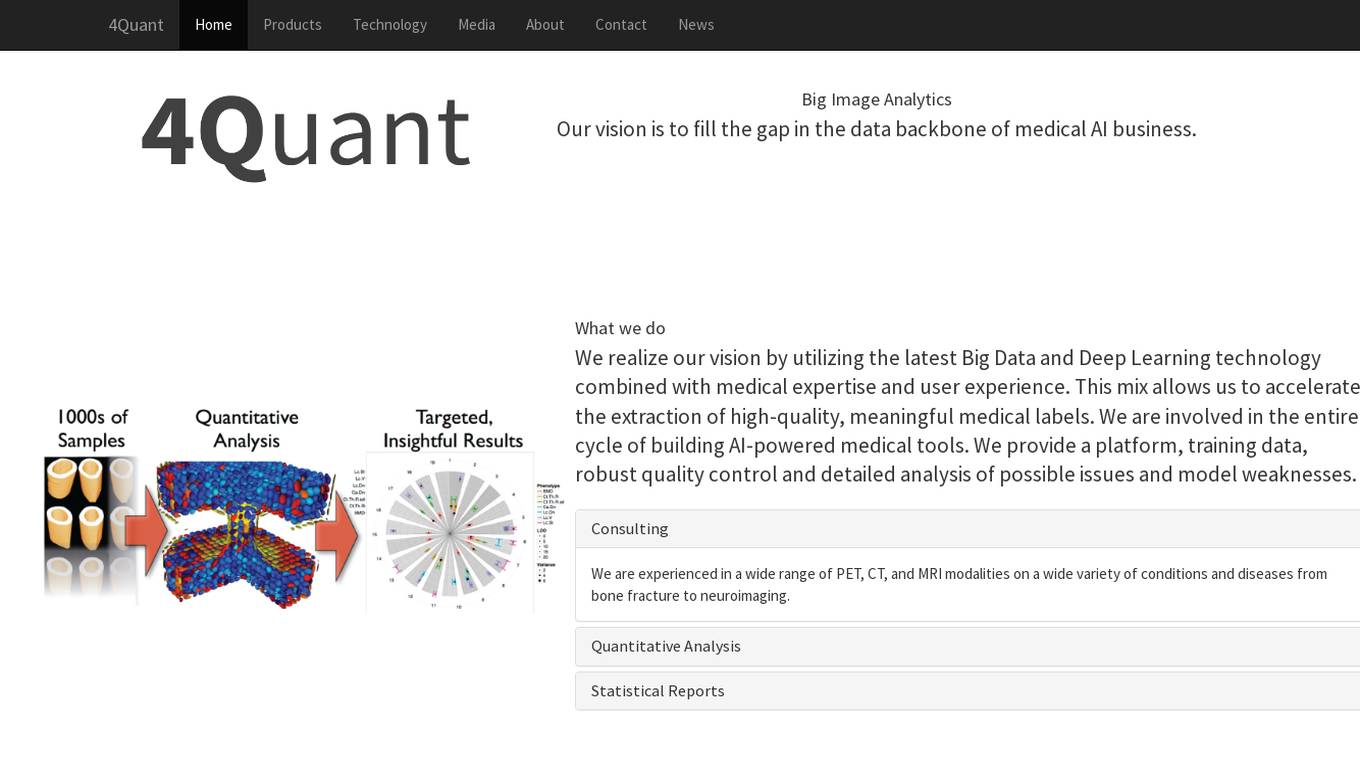
4Quant
4Quant is an AI-powered medical imaging platform that utilizes Big Data and Deep Learning technology to accelerate the extraction of high-quality medical labels. The platform offers a range of tools for image analysis, annotation, and data analytics in the medical field. 4Quant aims to provide scalable solutions for medical imaging analysis, statistical reporting, and personalized training in image analysis. The platform is built on the latest Big Data framework, Apache Spark, and integrates with cloud computing for efficient processing of large datasets.

LoraAI
LoraAI is a cutting-edge AI platform that empowers creators to generate images, create videos, train custom AI styles, and edit with powerful tools. With a wide range of AI models and features, LoraAI provides everything needed for AI creation, catering to professionals and hobbyists alike. The platform offers fast and efficient processing, high-quality outputs, and user-friendly interfaces, making it a top choice for those looking to enhance their creative projects with AI technology.
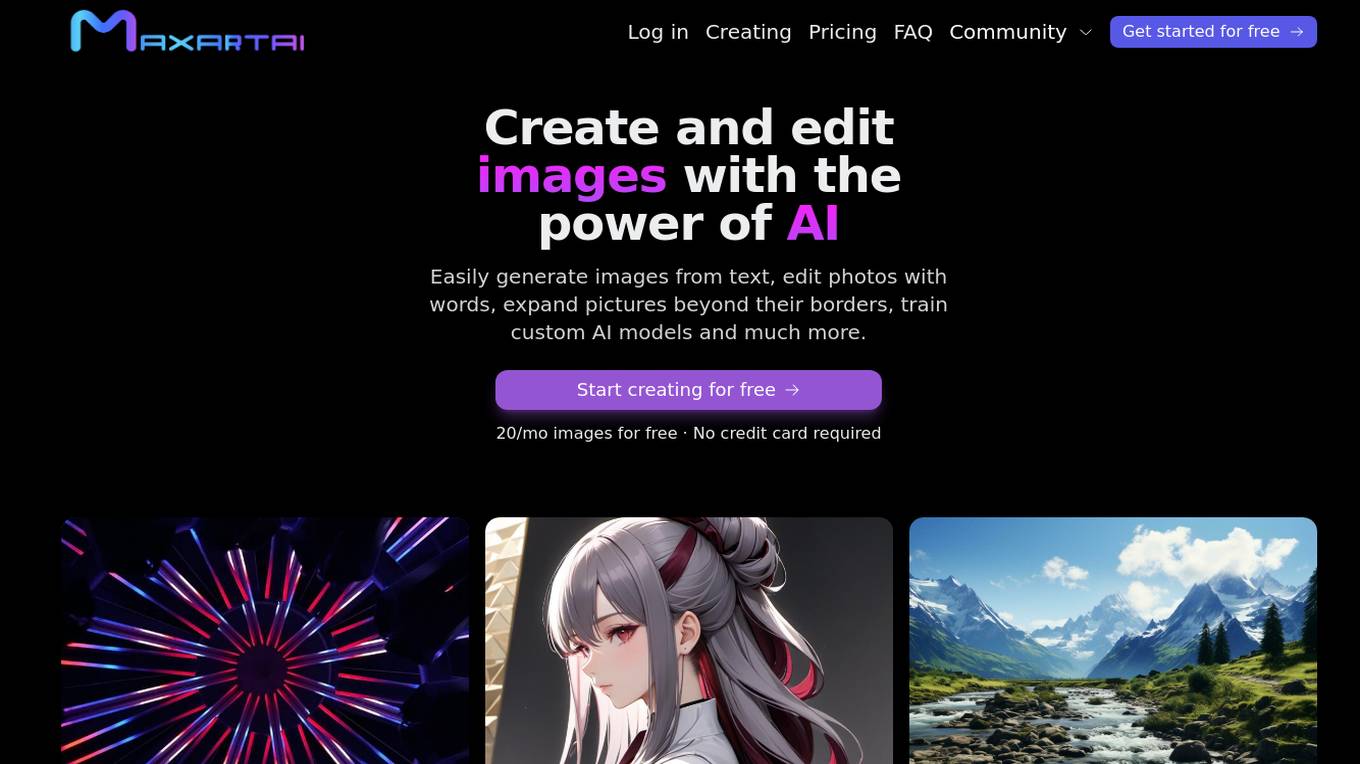
AI Image Generator Free
AI Image Generator Free is a powerful online tool that allows users to create and edit images using the capabilities of artificial intelligence. Users can easily generate images from text, edit photos with words, expand pictures beyond their borders, train custom AI models, and much more. The tool offers a variety of features to enhance creativity and streamline image creation processes.
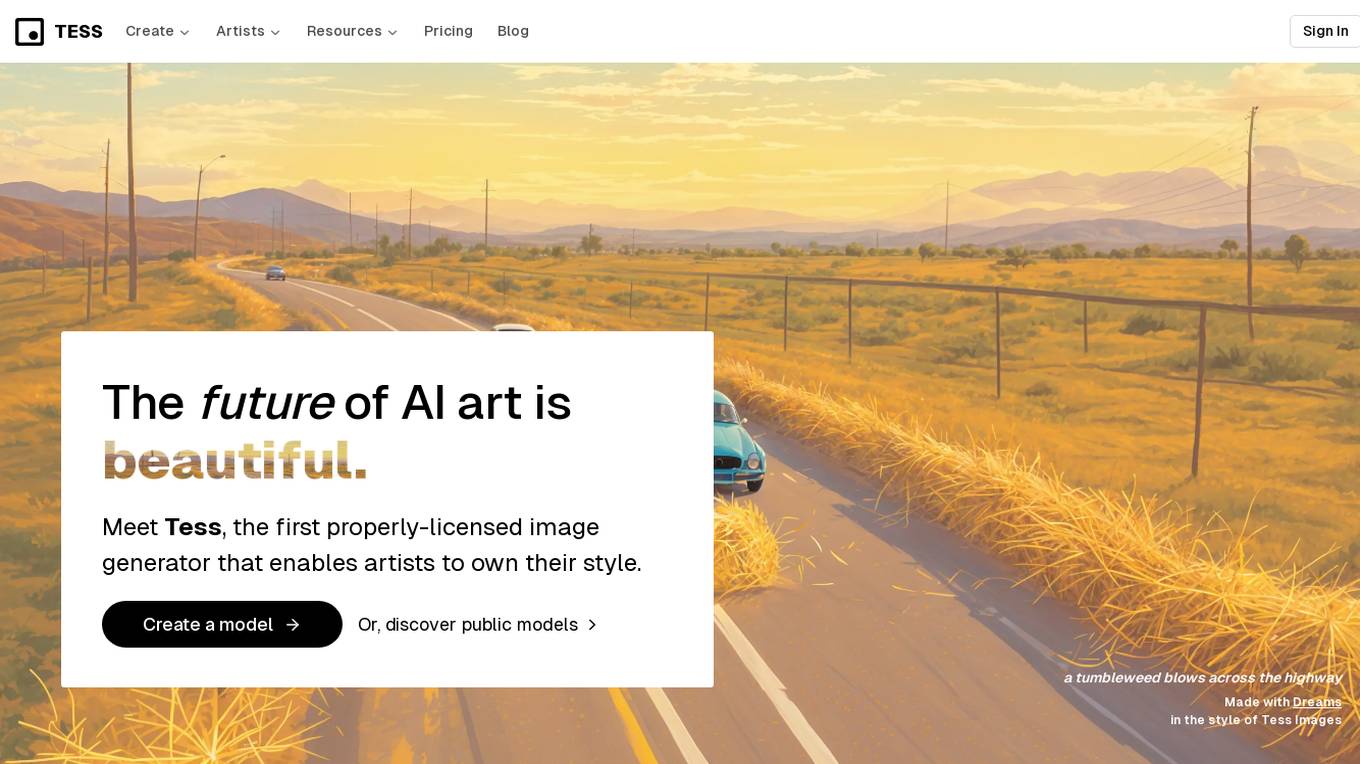
Tess
Tess is the first AI image generator that empowers artists to own their style by creating properly-licensed images. It offers a world-class image editor designed for AI, allowing users to generate art in a consistent visual style. Tess enables artists to create models, edit and customize their generations, and discover how AI can enhance their artistic style. With Tess, users can access copyright-safe generations created by real artists, ensuring ethical AI art practices.
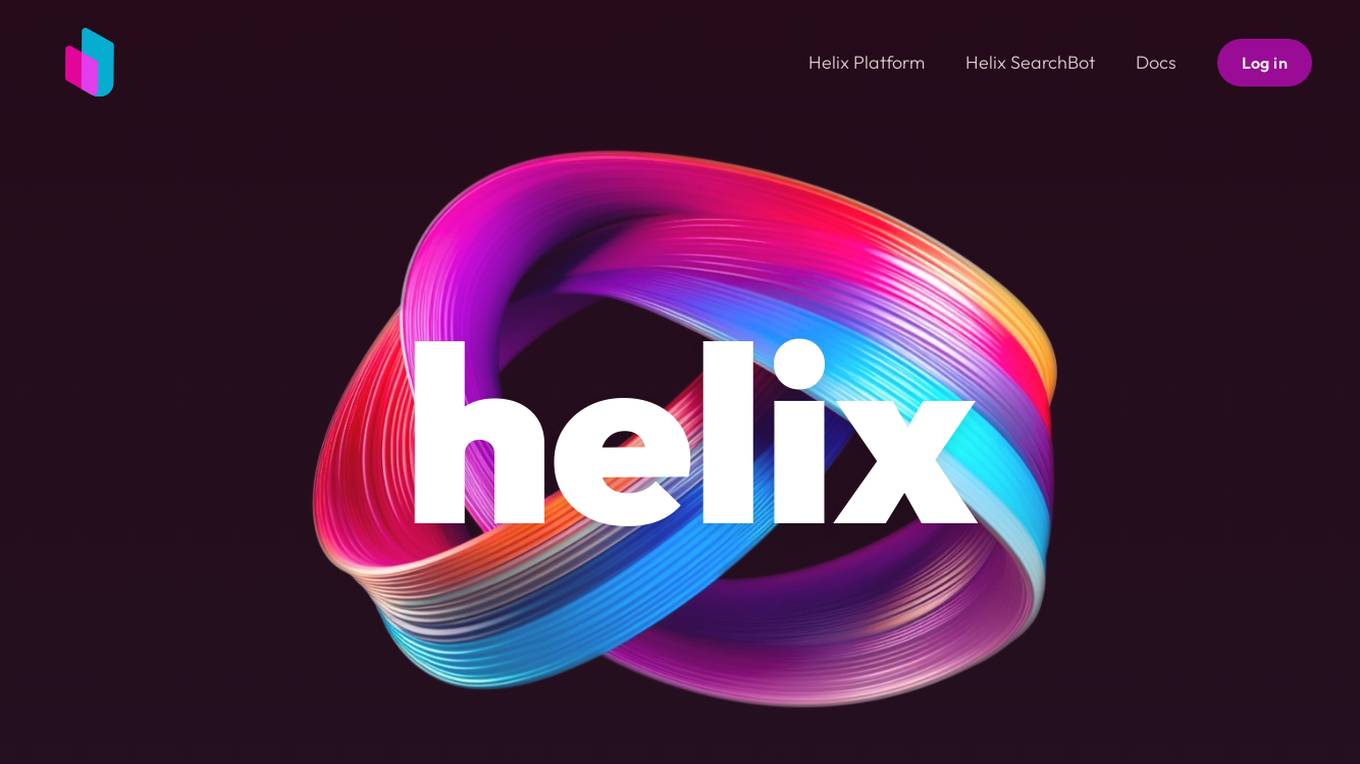
Helix AI
Helix AI is a private GenAI platform that enables users to build AI applications using open source models. The platform offers tools for RAG (Retrieval-Augmented Generation) and fine-tuning, allowing deployment on-premises or in a Virtual Private Cloud (VPC). Users can access curated models, utilize Helix API tools to connect internal and external APIs, embed Helix Assistants into websites/apps for chatbot functionality, write AI application logic in natural language, and benefit from the innovative RAG system for Q&A generation. Additionally, users can fine-tune models for domain-specific needs and deploy securely on Kubernetes or Docker in any cloud environment. Helix Cloud offers free and premium tiers with GPU priority, catering to individuals, students, educators, and companies of varying sizes.
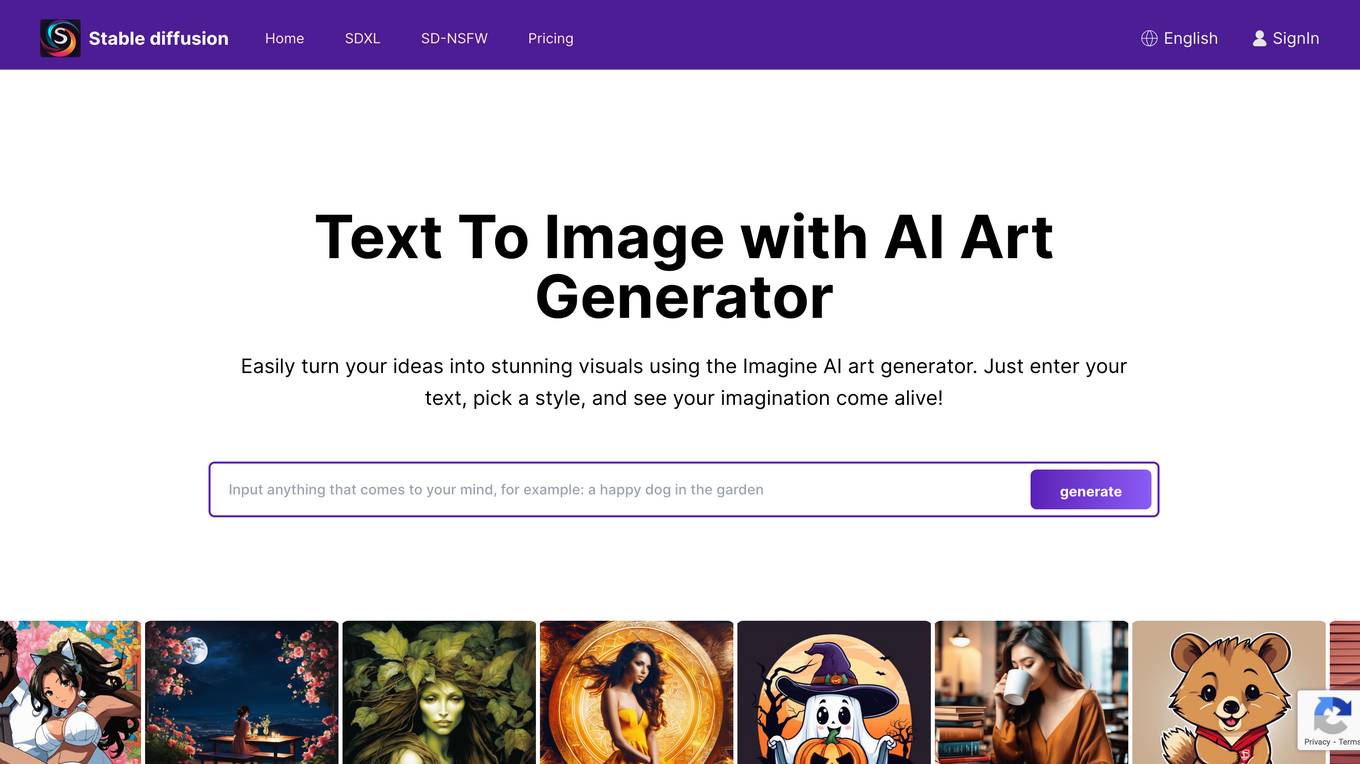
Stable Diffusion
Stable Diffusion is an AI art generation tool that allows users to create high-quality images from text descriptions. It offers a user-friendly platform for both beginners and experts to explore AI art creation without deep technical knowledge. The tool excels in producing complex, detailed, and customizable images, making it ideal for artists, designers, and anyone looking to integrate AI into their creative process. Stable Diffusion provides unprecedented creative freedom through features like image generation, inpainting, outpainting, and text-guided image-to-image translation.
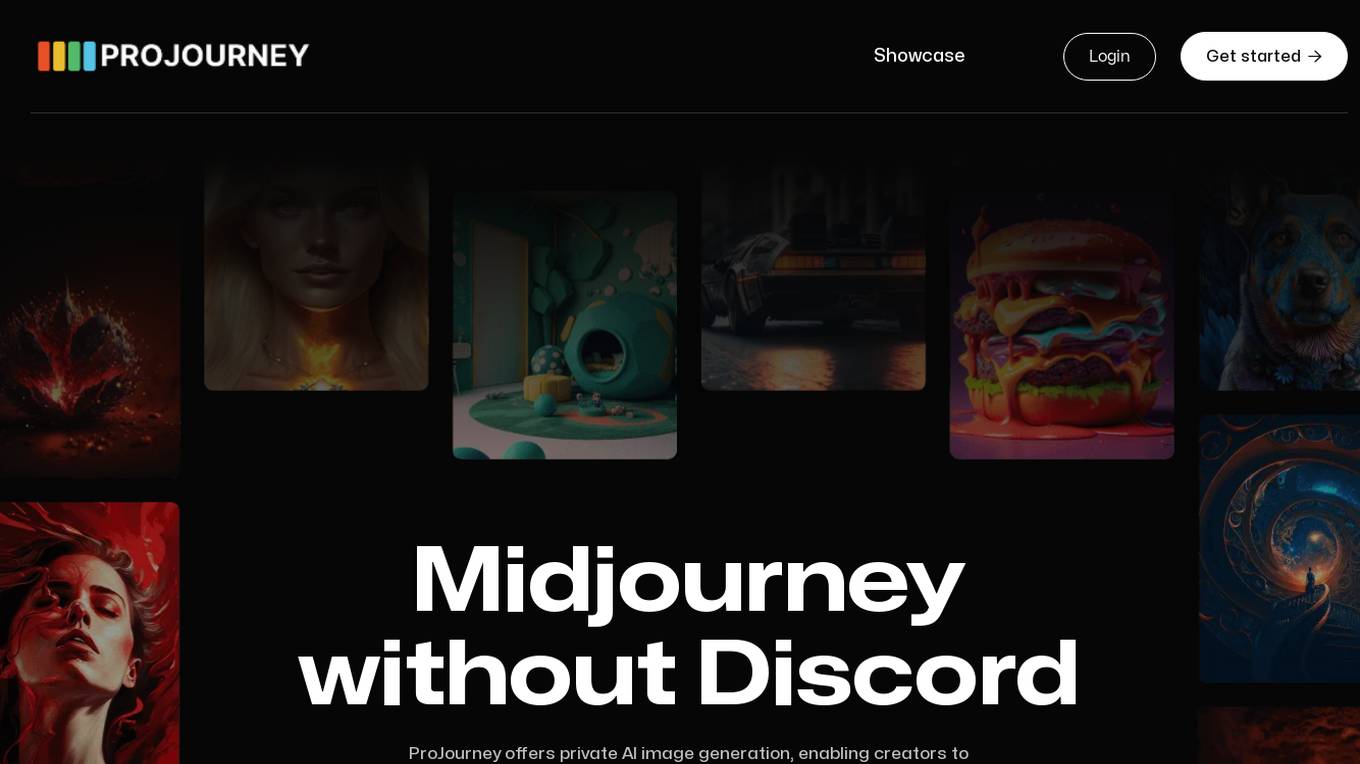
ProJourney AI
ProJourney AI is a generative AI tool designed for designers and creators. It offers private AI image generation, enabling users to create high-quality images without sharing them publicly. Users can create amazing images starting with a text prompt or by uploading existing images to train the AI model. ProJourney simplifies AI image creation by providing access to Midjourney's generator without Discord, making the process easy and efficient.
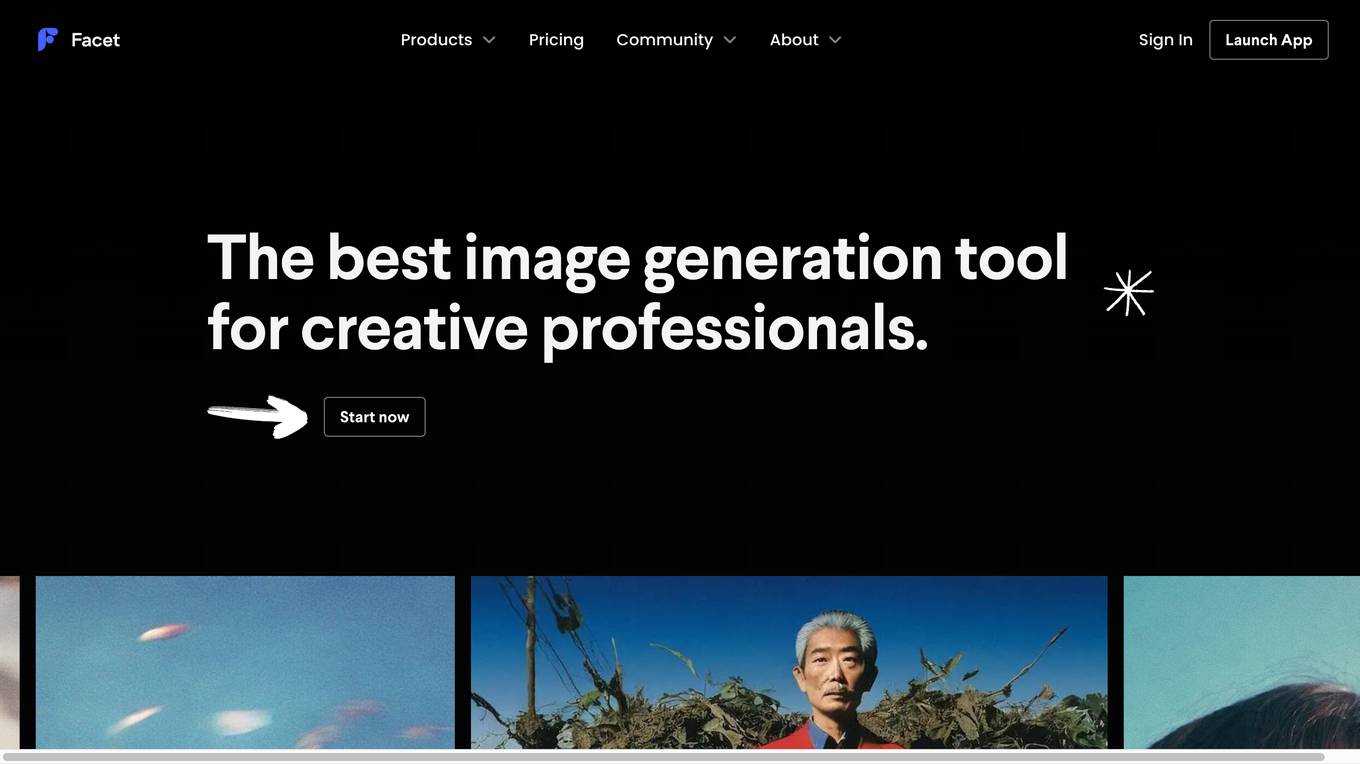
Facet
Facet is a cutting-edge generative imagery tool that helps creative professionals focus on what matters. It provides creative assistance without trading off artistic control. Facet helps overcome time and resource constraints that prevent trying out ideas. It offers an intuitive image generation experience with more than just text prompts, including image references, automatic prompt variations, and even custom models trained on the user's exact aesthetic. Facet allows users to train a custom model using their own images in minutes, generating endless assets in their exact vision. Users can add image references to any prompt, instantly getting images that adhere to their subject or style. Facet provides a collaborative canvas for users to riff with teammates and build off of each other's prompts and ideas.
1 - Open Source AI Tools

ai-reference-models
The Intel® AI Reference Models repository contains links to pre-trained models, sample scripts, best practices, and tutorials for popular open-source machine learning models optimized by Intel to run on Intel® Xeon® Scalable processors and Intel® Data Center GPUs. The purpose is to quickly replicate complete software environments showcasing the AI capabilities of Intel platforms. It includes optimizations for popular deep learning frameworks like TensorFlow and PyTorch, with additional plugins/extensions for improved performance. The repository is licensed under Apache License Version 2.0.
20 - OpenAI Gpts
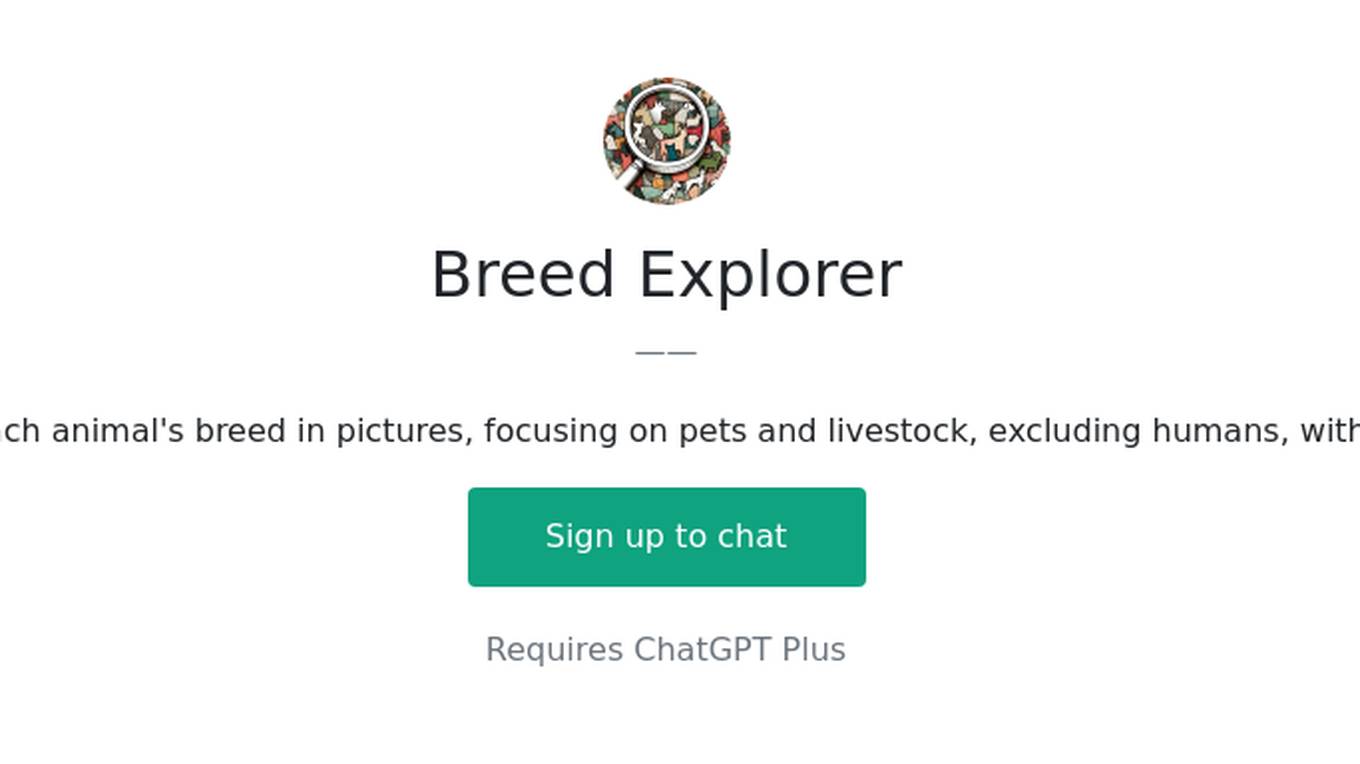
Breed Explorer
Identifies each animal's breed in pictures, focusing on pets and livestock, excluding humans, with care tips.

How to Train a Chessie
Comprehensive training and wellness guide for Chesapeake Bay Retrievers.
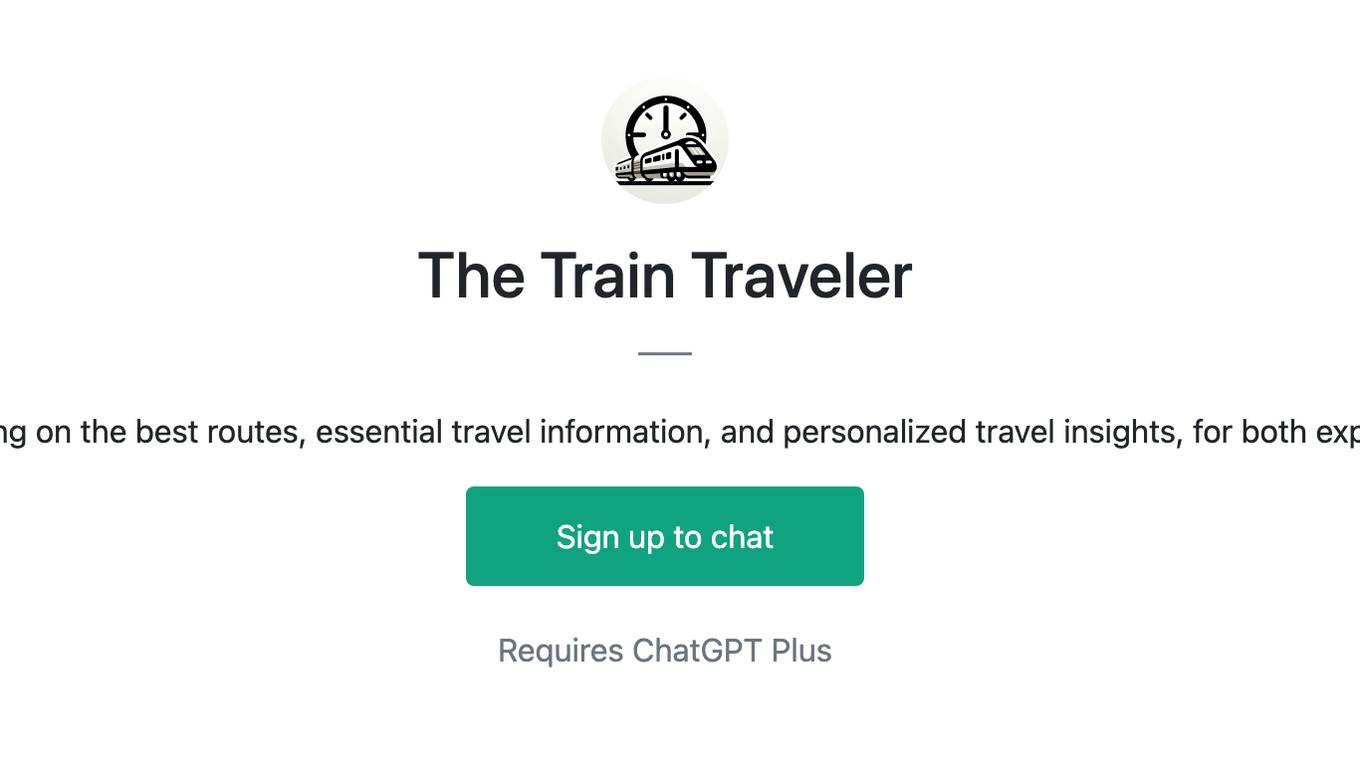
The Train Traveler
Friendly train travel guide focusing on the best routes, essential travel information, and personalized travel insights, for both experienced and novice travelers.

How to Train Your Dog (or Cat, or Dragon, or...)
Expert in pet training advice, friendly and engaging.

TrainTalk
Your personal advisor for eco-friendly train travel. Let's plan your next journey together!
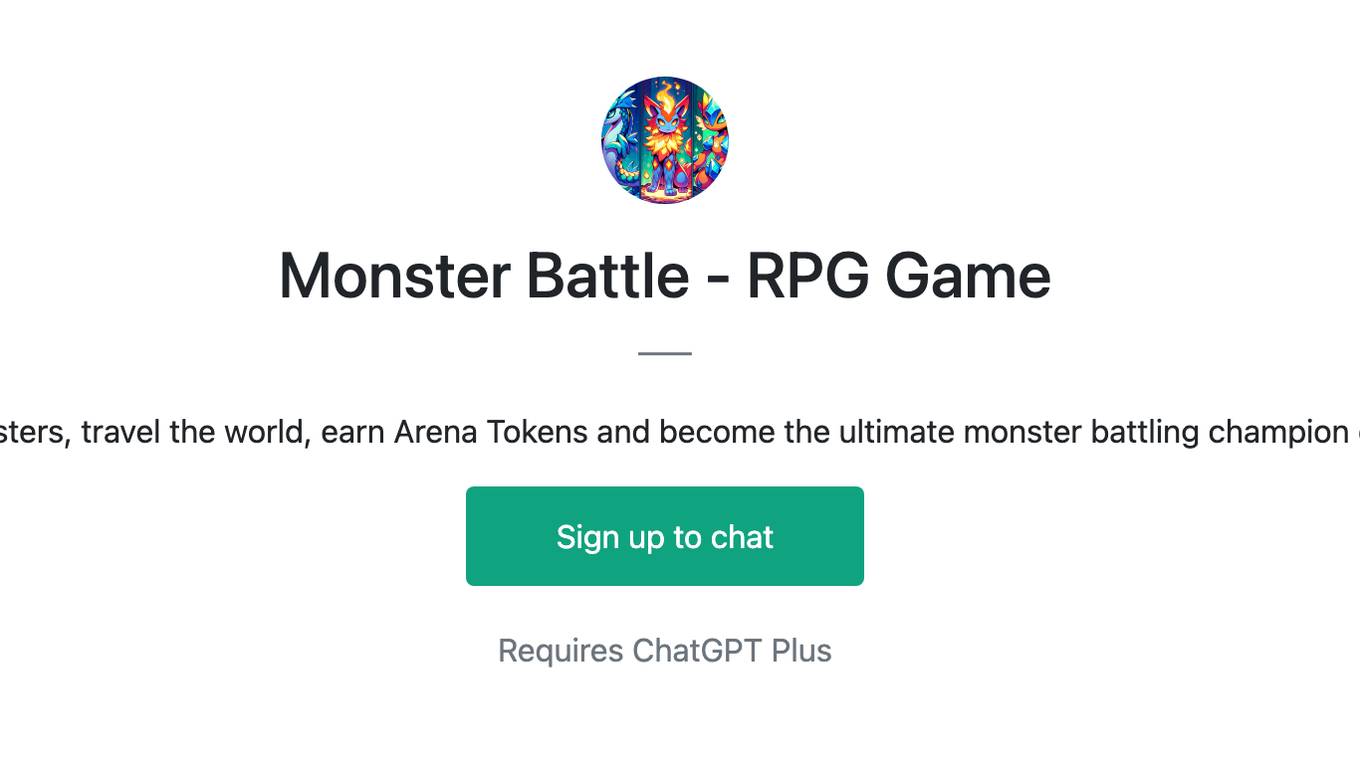
Monster Battle - RPG Game
Train monsters, travel the world, earn Arena Tokens and become the ultimate monster battling champion of earth!
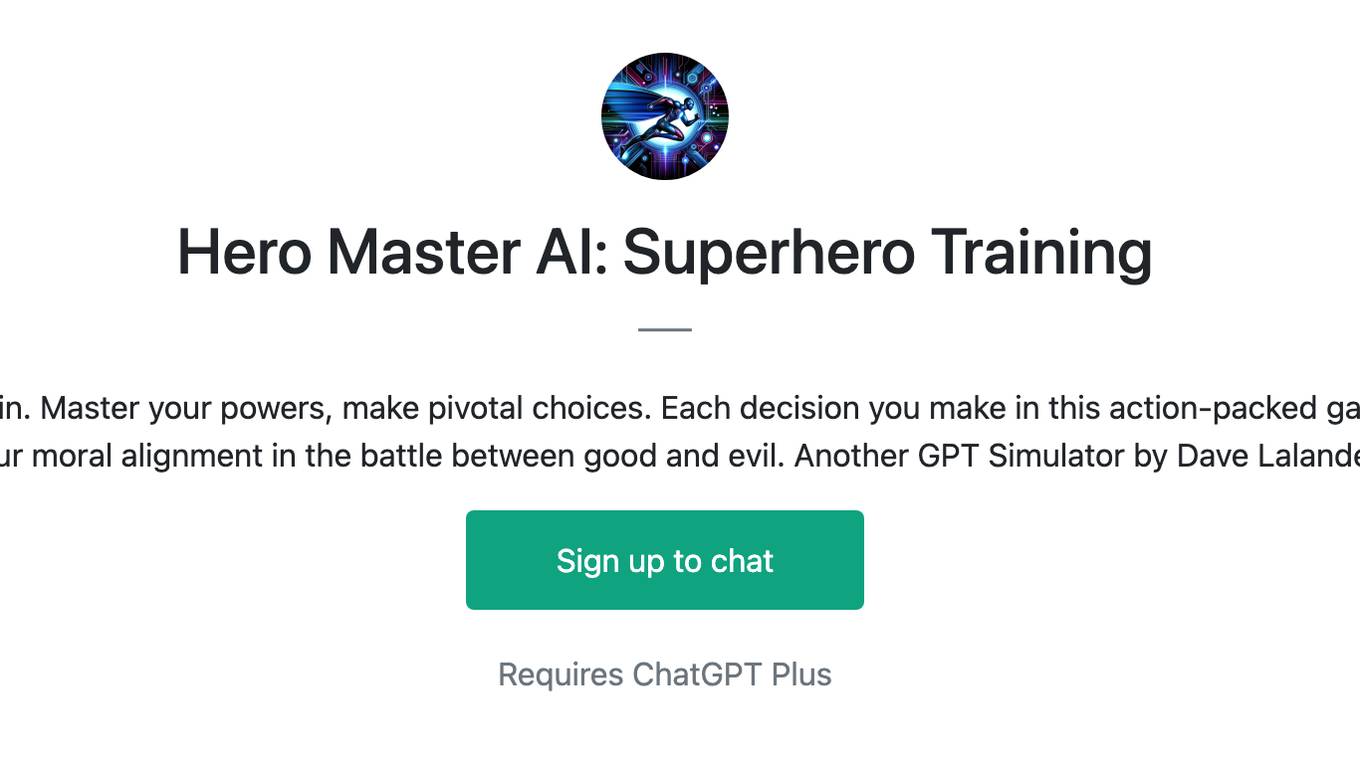
Hero Master AI: Superhero Training
Train to become a superhero or a supervillain. Master your powers, make pivotal choices. Each decision you make in this action-packed game not only shapes your abilities but also your moral alignment in the battle between good and evil. Another GPT Simulator by Dave Lalande

Pytorch Trainer GPT
Your purpose is to create the pytorch code to train language models using pytorch

Design Recruiter
Job interview coach for product designers. Train interviews and say stop when you need a feedback. You got this!!

Pocket Training Activity Expert
Expert in engaging, interactive training methods and activities.
